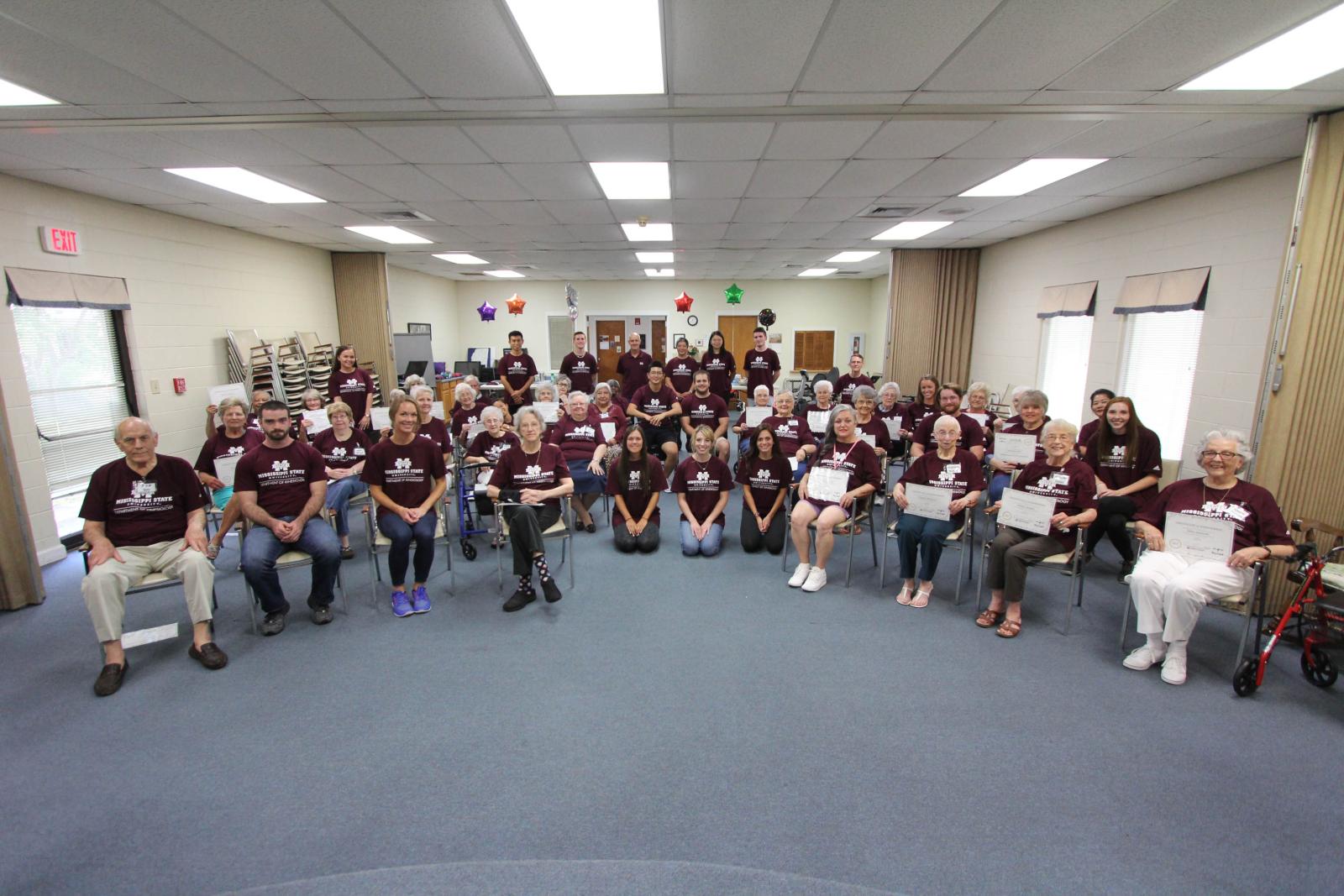Kinesiology Professor Awarded Inaugural Excellence In Community Engagement Award With Tai Chi Project

Mississippi State has recognized a Department of Kinesiology project as one of the four major outreach efforts receiving the university’s inaugural Excellence in Community Engagement Awards. “Bringing Tai Chi to Mississippi’s Aging Population for Healthy Body and Positive Emotion” is the name of the award-winning project.
The award includes $5,000 to further community engagement within MSU’s trifold mission of teaching, research and service and honors examples of successful involvement of faculty, staff and students. Sponsors include the offices of the Provost and Executive Vice President and Vice President for Research and Economic Development, MSU Extension and the Center for Community-Engaged Learning. Selected from more than 30 nominations, the Department of Kinesiology’s project earned its award in the community-engaged service category.
Previous research indicates that Tai Chi, a traditional Chinese martial-art-type of exercise, can reduce falls—a major cause of injury among the elderly—along with improving cardiovascular function, muscle strength, flexibility and mental health in older adults. Tai Chi is a low-intensity, slow-motion exercise that has been studied in older adults. The MSU study involved 32 Trinity Place retirement home residents placed into two groups, with one group participating in Tai Chi exercises and the other playing Bingo.
“Aging induces deterioration in fine and gross motor function which helps us complete activities of daily living. Dexterity, depth perception, comprehension, proprioception, balance, and locomotion are all factors that make up motor function,” explained Zhujun Pan, assistant professor of kinesiology. “However, if any of these factors are compromised, there may be problems in completing simple everyday tasks, such as self-dressing, self-feeding, ambulating, or grooming, all of which promote independence for the older adult population.”
After eight weeks, the preliminary data showed that endurance improved in both groups, though hand-eye coordination significantly improved for those who performed Tai Chi, but not for those who played Bingo.
Pan said the research concludes that this exercise can give older adults higher levels of endurance, manual dexterity and strength. Findings were published in the journal Frontiers in Aging Neuroscience and presented at the Southeast Chapter of the American College of Sports Medicine 2018 conference, among other outlets.